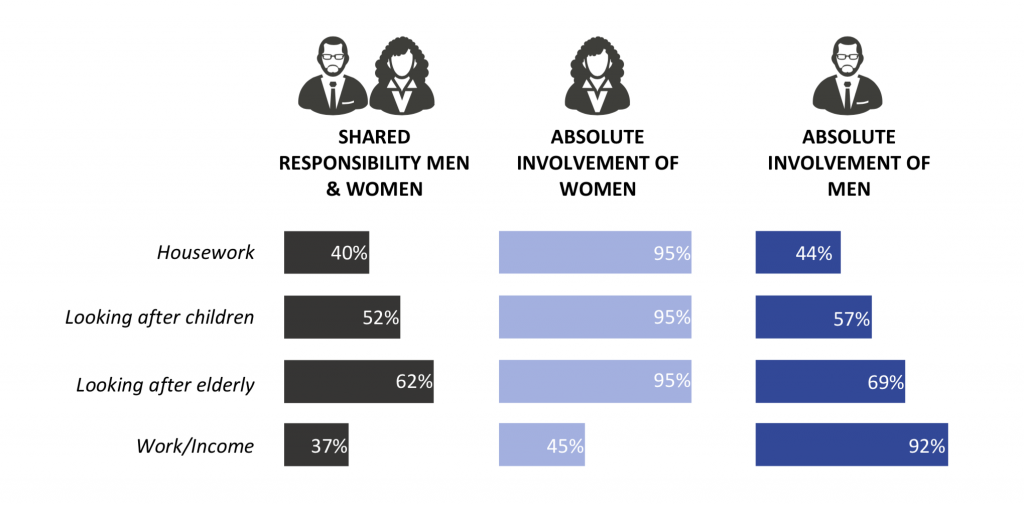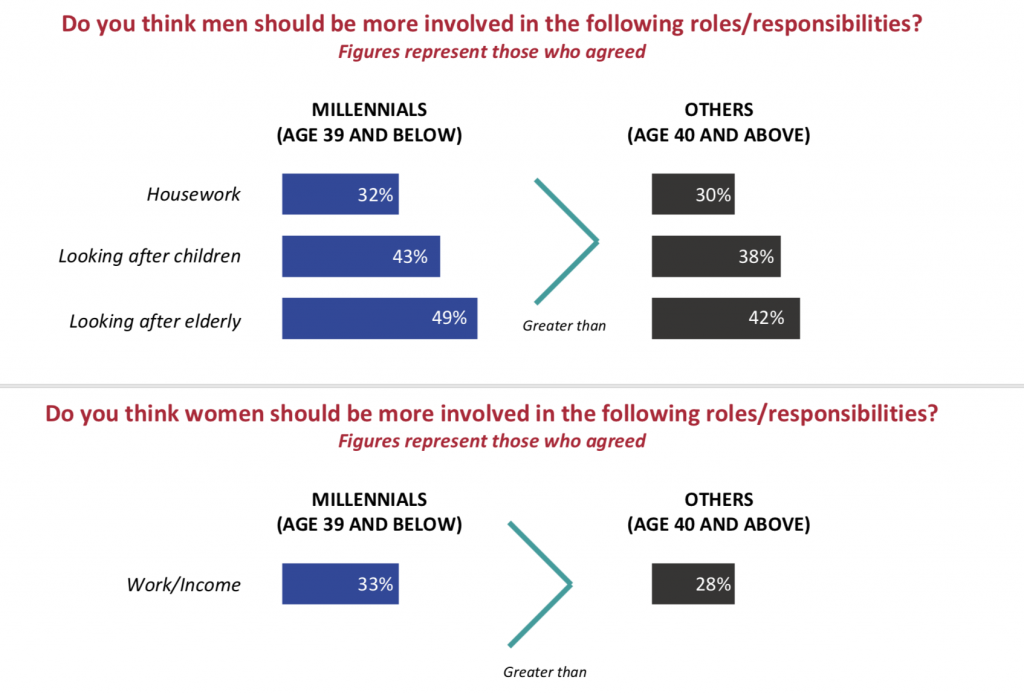Malaysia Population Research Hub

Gender roles in Malaysian families are still very much traditional, where men are expected to be the breadwinner and women to be the caregiver. Based on the study’s survey, 95% of Malaysian women were involved in housework, childcare, and eldercare duties, whereas only 44%, 57%, and 69% of men were involved in each of the three categories respectively. Conversely, 92% of men were involved in finding work and income of the family, whereas only 45% of women were involved in the same capacity. Shared responsibility between men and women differ for each of the four categories, where ‘looking after the elderly’ was the highest (62% of men and women said that this was a joint responsibility), whereas finding work and income was the lowest (37% of men and women said that this was a joint responsibility).

Traditional Gender Roles in Caregiving and Breadwinning
Source: Population survey conducted under this study (2017), n=3,044

Involvement of Men in Caregiving
Source: Population survey conducted under this study (2017)
Note: Asked among respondents who said that women/men currently shoulder heavier responsibilities in these roles.
Among younger and older millennials, the concept of shared responsibility is more prevalent and acceptable to them compared to the generations before them. For the Millennial generation, which will define the characteristics of the families of the future, many more said that men should be more involved in housework, childcare, and eldercare compared to the generations before them. Millennials: 32%, 43%, and 49% said that men should be more involved in housework, childcare, and eldercare, compared to 30%, 38%, and 42% for the generations before them.) In addition, more Millennials agree that women should be more involved in finding work and income compared to the generations before them. (Millennials: 33% compared to 28% for the generations before them.
